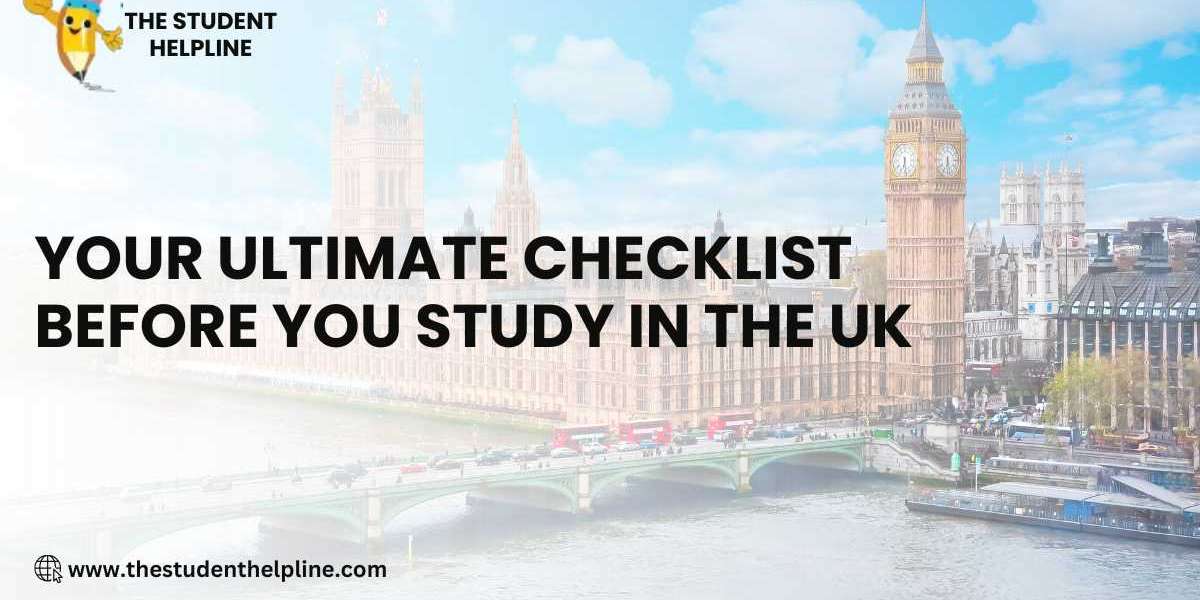However, the journey from intention to arrival isn’t a straight line—it involves several critical steps, decisions, and deadlines. Whether you're an undergraduate hopeful or pursuing postgraduate dreams, proper preparation is the key to a successful transition.
To make sure you’re ready, we’ve compiled the Study in UK—a step-by-step guide that covers everything from academic planning and visa procedures to packing tips and cultural readiness. Let’s dive in!
✅ 1. Research Universities and Courses
Before anything else, take time to explore which universities offer the course or program you’re interested in. Consider:
University rankings and reputation
Course content and structure
Location and campus facilities
Student satisfaction ratings
Career outcomes
For example, some universities in the UK are known for business and finance, while others excel in technology or the arts. Don't just go for the most famous institution—go for the one that fits your goals.
Pro Tip:
Use official websites and university portals to explore modules and speak to current students on social media or forums.
✅ 2. Check Eligibility and Entry Requirements
Every course and institution has its own set of requirements. These often include:
Academic qualifications
Proof of English proficiency (IELTS, TOEFL, or equivalent)
Personal statement
References or letters of recommendation
Some universities might allow you to study in UK without IELTS if you've previously studied in English or pass an internal English assessment.
✅ 3. Apply Through UCAS or Directly
For undergraduate programs, most students apply through UCAS (Universities and Colleges Admissions Service), the central application system in the UK. For postgraduate or foundation programs, applications are often made directly through the university’s website.
Documents typically required:
Academic transcripts
Proof of English proficiency
Statement of Purpose (SOP)
Reference letters
Passport scan
Timelines matter here. UCAS deadlines for most courses fall in January, but some programs (especially medicine or Oxbridge) have earlier deadlines.
✅ 4. Apply for Scholarships and Financial Aid
UK education can be expensive, especially for international students. However, many scholarships and bursaries are available for deserving candidates. These include:
Commonwealth Scholarships
Chevening Scholarships
University-specific awards
Start your scholarship search early and prepare strong personal essays. Keep an eye on deadlines and eligibility conditions.
✅ 5. Get Help from a Trusted Immigration Consultancy
Navigating the visa process and admission requirements can be overwhelming. This is where professional help makes a big difference. A reliable immigration consultancy will help you:
Shortlist universities based on your profile
Draft and edit your SOP
Organize your application documents
Prepare for visa interviews
Ensure compliance with UKVI (UK Visas and Immigration) rules
We recommend seeking assistance from The Student Helpline, a well-established name in guiding students through their UK study plans. Their expert counselors provide one-on-one support and stay updated with the latest immigration policies.
✅ 6. Prepare and Apply for Your UK Student Visa (Tier 4)
Once you’ve received your Confirmation of Acceptance for Studies (CAS) from your university, you can apply for a student visa.
Documents Needed:
CAS letter from the university
Valid passport
Recent photographs
Proof of financial means (bank statements)
English language proficiency proof
Tuberculosis (TB) test results (if required)
Academic documents
Make sure all documents are genuine and up-to-date. Errors or inconsistencies can result in delays or rejections.
✅ 7. Plan Your Accommodation
You’ll need a place to stay, preferably arranged before arrival. Options include:
On-campus student housing
Private student halls
Shared flats or apartments
University accommodation is generally safer and easier to manage for first-year students. If you're going for off-campus housing, check reviews, contracts, and safety features before committing.
✅ 8. Book Your Flights and Arrange Travel Insurance
Once your visa is approved, book your flight as early as possible to get better prices. Also, make sure to purchase comprehensive travel insurance, which can cover:
Flight delays or cancellations
Medical emergencies
Lost luggage
Travel insurance gives you peace of mind, especially during international travel.
✅ 9. Get Your Finances in Order
UK banking systems and currency might be different from what you're used to. Consider:
Opening a UK student bank account (many banks offer perks)
Carrying some British Pounds (GBP) in cash upon arrival
Understanding how international transfers work
Managing tuition and living expenses
You should also check if your country has any currency exchange regulations or banking limits when sending money abroad.
✅ 10. Pack Smartly
Here’s a quick packing checklist:
Original documents (academic records, visa, passport, etc.)
Warm clothes (UK weather can be cold and rainy)
Adapters for UK plugs
Prescription medications and medical records
A few comfort items from home (snacks, spices, etc.)
A basic kitchen kit and utensils if living off-campus
Avoid overpacking—many items can be easily purchased after arrival.
✅ 11. Attend Pre-Departure Briefings
Many universities and consultants like The Student Helpline offer pre-departure sessions. These cover:
What to expect on arrival
Navigating the airport and immigration
Tips on homesickness and cultural shock
Guidance on student life in the UK
These briefings can give you an extra layer of preparedness and reduce anxiety.
✅ 12. Understand Your Rights and Responsibilities
Once you enter the UK on a student visa, you have certain rights and responsibilities:
You CAN:
Work up to 20 hours a week during term time
Stay in the UK for a limited time after your course ends (depending on visa rules)
Travel in and out of the UK (as per visa validity)
You CANNOT:
Claim public funds or benefits
Work full-time without permission
Stay beyond your visa limit without applying for an extension
Understanding these rules is crucial to avoid unintentional visa violations.
✅ 13. Network Before You Land
Join online student communities on platforms like Facebook, Reddit, or WhatsApp. Look for:
Incoming student groups for your university
Indian or international student forums
Housing discussion groups
Course-specific communities
Networking early helps ease your transition and might even help you find flatmates or friends before you fly.
✅ 14. Learn About UK Culture and Etiquette
The UK has a unique cultural identity. Knowing a bit about British customs and etiquette can help you integrate better. For example:
Brits value politeness and punctuality.
Small talk is common, especially about the weather.
Queuing (standing in line) is taken seriously!
Being culturally aware will make your time in the UK more enjoyable and respectful.
✅ 15. Set Academic and Career Goals
Finally, don’t lose sight of why you chose to study in UK. Once you’ve settled in:
Connect with career counselors
Attend job fairs and workshops
Start building your CV and LinkedIn profile
Consider internships and part-time jobs to gain experience
The UK offers a post-study work visa (Graduate Route), giving you up to 2 years to work after graduation. Planning ahead helps you take full advantage of this opportunity.
Final Thoughts
Studying in the UK is a major milestone in any student’s life. The process may seem long and complicated, but with proper planning—and support from an expert Immigration consultancy like The Student Helpline—you can navigate it with confidence and clarity.
Use this checklist as your roadmap. Stay organized, stay informed, and most importantly, stay excited. The UK is not just a place to earn a degree—it’s a place to grow, network, and discover your full potential.







